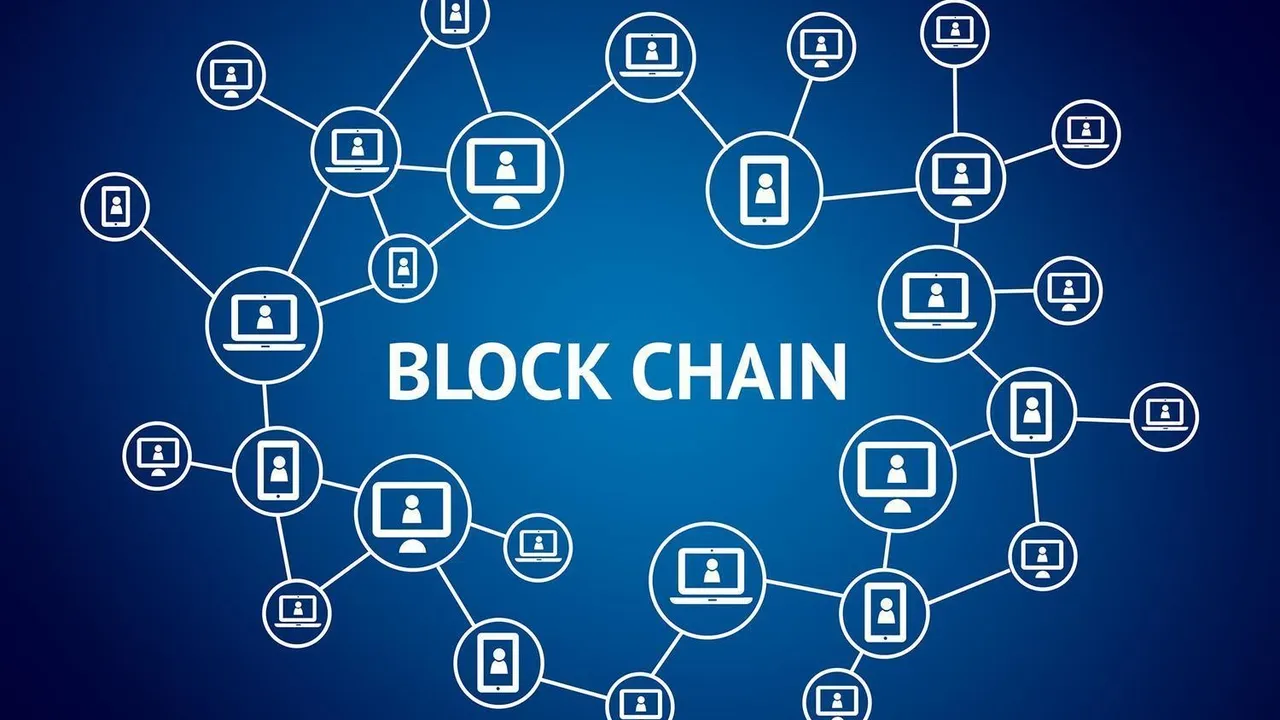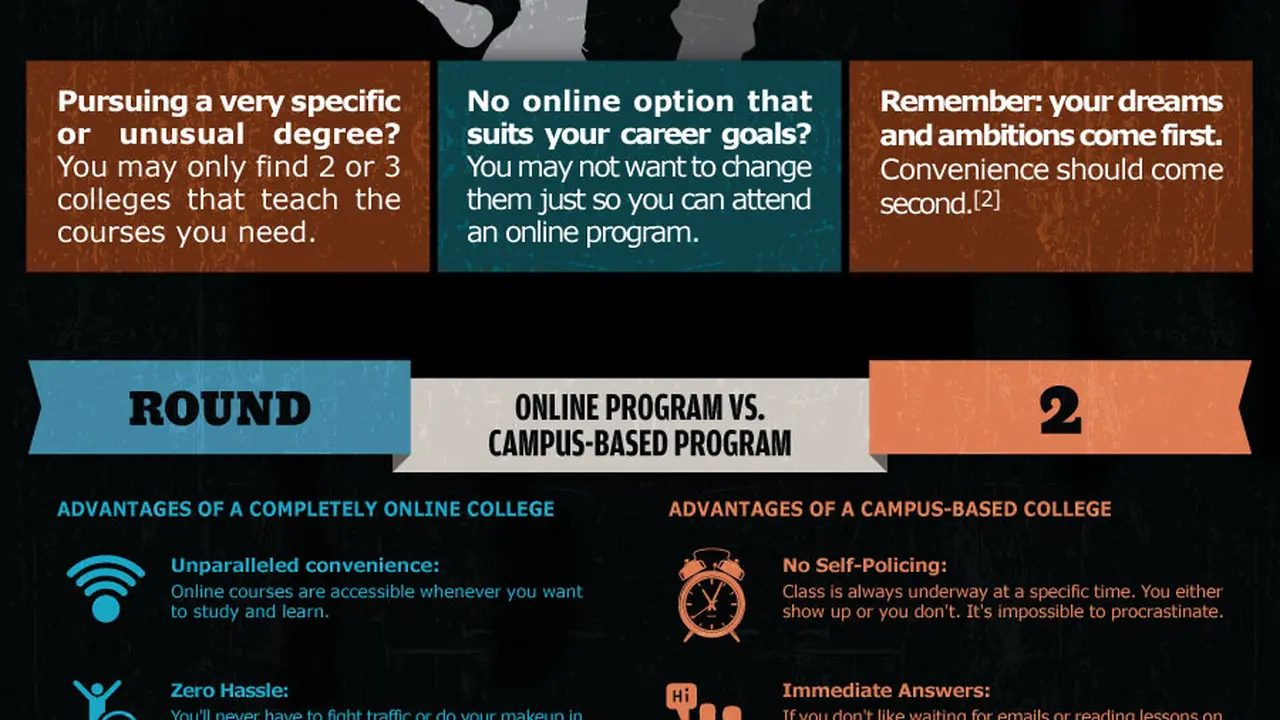5 Proven Strategies for Effective Online Learning
Discover 5 proven strategies for effective online learning. Maximize your study time and achieve your educational goals.

5 Proven Strategies for Effective Online Learning
Hey there, future online learning superstar! So, you've decided to dive into the world of online education, huh? That's awesome! Whether you're looking to pick up a new skill, advance your career, or just satisfy your curiosity, online learning offers incredible flexibility and access. But let's be real, it's not always a walk in the park. Distractions are everywhere, motivation can waver, and sometimes it feels like you're shouting into the digital void. Don't sweat it! I've been there, and I've seen countless others navigate these waters successfully. The secret? It's all about having a solid game plan. Forget just passively watching videos; we're talking about active, engaging, and super-effective strategies that will turn you into an online learning pro. Ready to unlock your full potential? Let's jump right in and explore five proven strategies that will not only help you survive but thrive in your online learning journey.
Strategy 1 Master Your Environment Creating an Optimal Study Space
First things first, your physical environment plays a huge role in your ability to focus and absorb information. Think about it: would you try to meditate in a bustling coffee shop? Probably not. The same goes for learning. Creating an optimal study space isn't just about having a desk; it's about designing an environment that minimizes distractions and maximizes concentration. This is especially crucial for online learners who might be juggling family life, roommates, or the ever-present allure of the couch.
Declutter and Organize Your Study Zone for Enhanced Focus
Start by decluttering. A messy space often leads to a messy mind. Clear away anything that isn't directly related to your studies. This means putting away those video game controllers, stacking up those unread novels, and tidying up any stray papers. Once it's clean, organize it. Have a designated spot for your notebooks, pens, chargers, and any other materials you need. Knowing exactly where everything is reduces mental friction and saves precious study time. Consider using organizers, file folders, or even digital tools to keep your resources in check. For instance, a simple desk organizer like the SimpleHouseware Mesh Desk Organizer (around $20 on Amazon) can make a world of difference. Or, if you prefer a more minimalist approach, the IKEA Alex Drawer Unit (starting at $90) offers sleek storage solutions that blend seamlessly into any modern study space.
Minimize Digital Distractions with Smart Tools and Habits
Now, let's talk about the elephant in the room: digital distractions. Your phone, social media, endless tabs – they're all vying for your attention. This is where smart tools and habits come into play. First, put your phone on silent or, better yet, in another room. Out of sight, out of mind, right? Second, consider using website blockers. These tools can temporarily block distracting websites like Facebook, Instagram, or YouTube during your study sessions. Popular options include Freedom (starts at $6.99/month, available on Windows, Mac, iOS, Android) which blocks apps and websites across all your devices, and Cold Turkey Blocker (free basic version, pro version $39, Windows and Mac) which is known for its robust blocking capabilities. For a simpler, free browser extension, StayFocusd (Chrome) or LeechBlock NG (Firefox) can help you manage your time on specific sites. The key is to make it harder to get distracted, so you naturally gravitate towards your learning materials.
Optimize Lighting and Comfort for Sustained Learning Sessions
Finally, don't underestimate the power of good lighting and comfort. Natural light is always best, so try to set up your study space near a window. If that's not possible, invest in good artificial lighting that mimics natural daylight. A desk lamp with adjustable brightness and color temperature, like the BenQ e-Reading Desk Lamp (around $180), can reduce eye strain and keep you alert. As for comfort, a good chair is non-negotiable, especially if you're spending hours learning. An ergonomic chair, such as the Herman Miller Aeron (starts at $1,000, a premium choice) or a more budget-friendly option like the Sihoo Ergonomic Office Chair (around $250 on Amazon), can prevent back pain and improve your posture, allowing you to focus on your studies rather than your discomfort. Make sure your desk is at a comfortable height, and consider a footrest if your feet don't comfortably reach the floor. Small adjustments can lead to big improvements in your ability to concentrate and learn effectively.
Strategy 2 Active Engagement Beyond Passive Consumption
One of the biggest pitfalls of online learning is falling into the trap of passive consumption. It's easy to just hit play on a video lecture, lean back, and hope the information magically seeps into your brain. Spoiler alert: it doesn't work that way! To truly learn and retain information, you need to actively engage with the material. This means going beyond just listening or reading and truly interacting with the content.
Take Effective Notes Not Just Copying but Synthesizing Information
Note-taking is an art, not just a transcription service. Instead of just copying down what the instructor says or what's on the slide, try to synthesize the information in your own words. This forces your brain to process and understand the concepts. Use different colors, symbols, and diagrams to make your notes more visually engaging. The Cornell Note-Taking System, for example, encourages you to divide your page into sections for main notes, cues, and a summary, promoting active recall and review. Digital note-taking tools can also be incredibly powerful. Evernote (free basic, premium starts at $7.99/month) allows you to capture notes in various formats, organize them with tags, and search through them easily. Notion (free personal, team plans start at $8/month per user) is another fantastic all-in-one workspace that lets you create highly organized and interconnected notes, wikis, and databases. For those who prefer handwritten digital notes, an iPad with an Apple Pencil and an app like GoodNotes 5 (one-time purchase of $7.99) or Notability (free basic, premium $14.99/year) offers a natural writing experience with the benefits of digital organization.
Participate Actively in Discussions and Forums for Deeper Understanding
Online courses often come with discussion forums or live Q&A sessions. Don't be a lurker! Actively participate. Ask questions, share your insights, and respond to your peers' posts. This not only helps solidify your understanding but also exposes you to different perspectives and clarifies any ambiguities. Engaging in discussions forces you to articulate your thoughts, which is a powerful learning tool. Many platforms, like Coursera and edX, have built-in discussion boards. Make it a habit to check them regularly and contribute thoughtfully. If your course doesn't have formal forums, consider creating a study group with fellow learners on platforms like Discord (free) or Slack (free basic, paid plans start at $7.25/month per user) to discuss concepts and collaborate on assignments. The act of explaining a concept to someone else is one of the best ways to truly understand it yourself.
Apply What You Learn Through Projects and Practice Exercises
The most effective way to learn is by doing. Don't just consume information; apply it. If you're learning to code, write code. If you're studying marketing, create a mock marketing plan. Many online courses include quizzes, assignments, and projects. Treat these as opportunities to test your understanding and reinforce your learning. If your course doesn't offer enough practical application, seek it out yourself. For example, if you're learning data science, try working on datasets from Kaggle (free). If you're learning graphic design, challenge yourself to create a new logo or website layout. Platforms like GitHub (free for personal use, paid plans for teams) are excellent for showcasing coding projects, while Behance (free) is perfect for designers to display their portfolios. The more you apply what you learn, the deeper your understanding will become, and the more confident you'll feel in your new skills.
Strategy 3 Time Management and Scheduling Your Learning Journey
One of the biggest advantages of online learning is its flexibility, but that can also be its biggest challenge. Without a set schedule, it's easy for learning to take a backseat to other commitments. Effective time management isn't about finding more time; it's about making the most of the time you have. This strategy is all about taking control of your schedule and making learning a non-negotiable part of your day.
Create a Dedicated Study Schedule and Stick to It
Treat your online learning like a regular class or a job. Block out specific times in your calendar for studying, just as you would for a meeting or an appointment. Be realistic about how much time you can commit and what times of day you're most productive. Some people are morning larks, others are night owls. Find your peak learning times and schedule your most challenging tasks then. Consistency is key here. Even if it's just an hour a day, sticking to your schedule will build a powerful habit. Use a digital calendar like Google Calendar (free) or Outlook Calendar (free with Microsoft account) to set reminders and visually track your study blocks. For more advanced task management, Todoist (free basic, premium starts at $4/month) or Asana (free basic, paid plans start at $10.99/month per user) can help you break down your learning goals into manageable tasks and integrate them into your daily schedule.
Break Down Large Tasks into Smaller Manageable Chunks
Looking at a huge course or a complex topic can feel overwhelming. The trick is to break it down into smaller, more manageable chunks. Instead of thinking, 'I need to finish this entire module,' think, 'I'll complete the first two lessons and then take a break.' This makes the task seem less daunting and gives you a sense of accomplishment as you tick off each small goal. This is where the Pomodoro Technique shines. It involves working for 25 minutes, then taking a 5-minute break. After four Pomodoros, take a longer break (15-30 minutes). This method helps maintain focus and prevents burnout. There are many Pomodoro timer apps available, such as Forest (free basic, premium $1.99/month, iOS/Android) which gamifies the process by growing a tree when you focus, or simple web-based timers like TomatoTimer (free).
Prioritize Your Learning Goals and Avoid Multitasking
You can't do everything at once, and trying to often leads to doing nothing well. Prioritize your learning goals. What's most important right now? What will have the biggest impact on your overall progress? Focus on those tasks first. Avoid multitasking during your dedicated study time. Switching between tasks constantly actually reduces your productivity and the quality of your learning. When you're studying, just study. Close all other tabs, put away your phone, and give your full attention to the material. Tools like the Eisenhower Matrix (a simple four-quadrant system for urgent/important tasks) can help you prioritize effectively. For digital task prioritization, apps like Trello (free basic, paid plans start at $5/month per user) or ClickUp (free basic, paid plans start at $7/month per user) allow you to visualize your tasks, set deadlines, and organize your workflow, ensuring you're always working on what matters most for your learning journey.
Strategy 4 Leverage Community and Collaboration for Enhanced Learning
While online learning can sometimes feel solitary, it doesn't have to be. In fact, one of the most powerful ways to enhance your learning is by connecting with others. Leveraging community and collaboration can provide support, different perspectives, and opportunities for deeper understanding that you might not get on your own.
Join Online Forums and Study Groups for Peer Support
Most online learning platforms have built-in forums or communities. Make it a point to join them! These are fantastic places to ask questions, share resources, and get help when you're stuck. Beyond the official course forums, seek out independent study groups. You can often find these on social media platforms like Facebook or LinkedIn, or dedicated online communities like Reddit (e.g., r/elearning, r/learnprogramming). Platforms like Discord (free) are incredibly popular for creating real-time study groups and discussion channels. Imagine having a group of peers who are all tackling the same challenges as you, ready to brainstorm solutions or explain a tricky concept. This peer support can be a huge motivator and a valuable resource for clarifying doubts and gaining new insights.
Collaborate on Projects and Assignments for Diverse Perspectives
If your course offers opportunities for group projects or collaborative assignments, jump on them! Working with others exposes you to different ways of thinking and problem-solving. You might learn a new technique from a peer, or discover a different approach to a problem you've been struggling with. Collaboration also helps you develop essential soft skills like communication, teamwork, and conflict resolution, which are highly valued in any professional setting. Tools like Google Docs (free with Google account), Microsoft 365 (paid subscription, free web versions), and Miro (free basic, paid plans start at $8/month per user for visual collaboration) make it easy to work together on documents, presentations, and brainstorming sessions in real-time, regardless of geographical location. These tools are indispensable for seamless online collaboration, allowing you to share ideas, edit documents, and track changes efficiently.
Seek Feedback and Offer Help to Solidify Your Understanding
Don't be afraid to ask for feedback on your work, whether it's from an instructor, a teaching assistant, or a peer. Constructive criticism is a gift that helps you identify areas for improvement and refine your understanding. Equally important, offer help to others. When you explain a concept to someone else, you're forced to articulate it clearly and logically, which deepens your own understanding. It's a win-win situation! Many online platforms facilitate this through peer review assignments. If not, actively engage in discussion forums by answering questions posed by other learners. This act of teaching is a powerful learning strategy in itself. Consider using platforms like Stack Overflow (free) for coding questions or specific subject-matter forums where you can both ask for and provide assistance. The more you engage in this give-and-take of knowledge, the more robust your learning will become.
Strategy 5 Prioritize Well-being and Prevent Burnout
Online learning is a marathon, not a sprint. It's easy to get caught up in the grind, pushing yourself to the limit, and neglecting your own well-being. But just like any other demanding activity, if you don't take care of yourself, you'll eventually hit a wall. Prioritizing your well-being isn't a luxury; it's a necessity for sustained learning and preventing burnout.
Take Regular Breaks and Practice Self-Care
Your brain isn't designed to focus for hours on end without a break. Regular breaks are crucial for maintaining concentration and preventing mental fatigue. Step away from your screen, stretch, grab a snack, or take a short walk. Even a 5-10 minute break every hour can significantly improve your productivity and retention. Beyond short breaks, make sure you're incorporating self-care into your routine. This could be anything from reading a book, listening to music, practicing mindfulness, or engaging in a hobby you enjoy. Apps like Calm (free basic, premium $69.99/year) or Headspace (free basic, premium $69.99/year) offer guided meditations and mindfulness exercises that can help you de-stress and refocus. Remember, a well-rested mind is a more effective learning mind.
Ensure Adequate Sleep and Nutrition for Optimal Brain Function
This might sound obvious, but it's often the first thing to go when deadlines loom. Sleep is not a luxury; it's essential for memory consolidation and cognitive function. Aim for 7-9 hours of quality sleep each night. Establish a consistent sleep schedule, even on weekends, to regulate your body's natural rhythm. Similarly, proper nutrition fuels your brain. Avoid relying on sugary snacks and excessive caffeine. Instead, opt for balanced meals rich in fruits, vegetables, whole grains, and lean proteins. Staying hydrated is also key. Keep a water bottle handy and sip throughout the day. Apps like Sleep Cycle (free basic, premium $29.99/year) can track your sleep patterns and wake you during your lightest sleep phase, while general health apps can help you monitor your water intake and meal planning. Think of your body as the hardware for your brain; you need to keep it in top condition for optimal performance.
Incorporate Physical Activity to Boost Energy and Reduce Stress
Sitting for long periods is not only bad for your physical health but also for your mental well-being. Regular physical activity is a powerful stress reliever and energy booster. It doesn't have to be an intense gym session; even a brisk walk, some yoga, or a quick home workout can make a huge difference. Aim for at least 30 minutes of moderate exercise most days of the week. Physical activity increases blood flow to the brain, which can improve cognitive function and mood. There are countless free workout videos on YouTube, or you can use fitness apps like Nike Training Club (free) or Peloton Digital (free basic, premium $12.99/month) for structured workouts. Integrating movement into your daily routine will not only keep you physically healthy but also sharpen your mind, making you a more effective and resilient online learner.
So there you have it – five proven strategies to supercharge your online learning journey. Remember, it's not about being perfect, but about being consistent and continuously refining your approach. By mastering your environment, actively engaging with content, managing your time effectively, leveraging community, and prioritizing your well-being, you're not just learning; you're building a sustainable and successful path to achieving your educational goals. Go forth and conquer that online course!
:max_bytes(150000):strip_icc()/277019-baked-pork-chops-with-cream-of-mushroom-soup-DDMFS-beauty-4x3-BG-7505-5762b731cf30447d9cbbbbbf387beafa.jpg)






